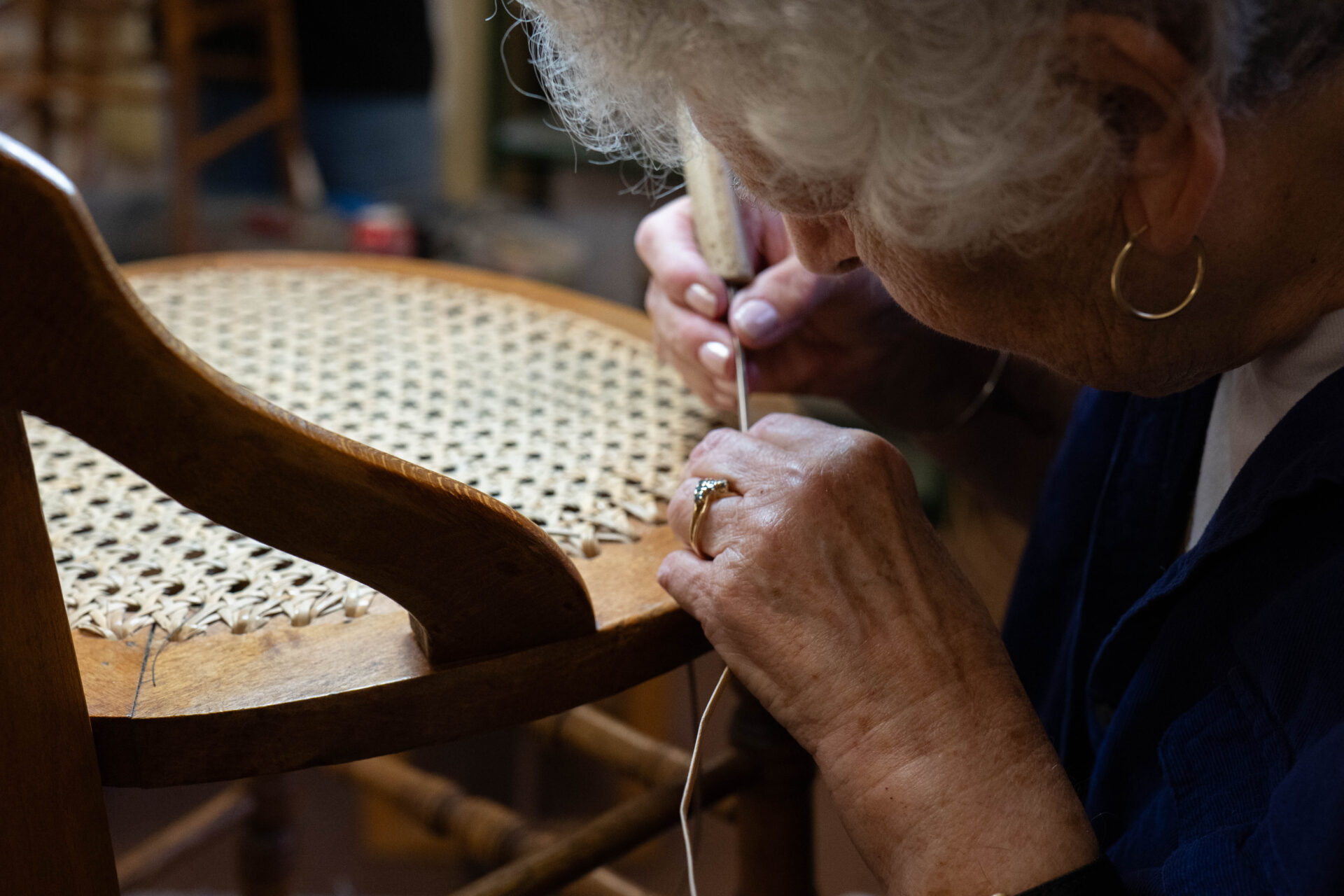This week, we visit the Seeing Hand Association. They bring together people who are visually impaired to learn the craft of chair caning.
Corporate greed has been gobbling up newspapers for years. Now, some of those same companies are taking a bite out of mobile home parks. They’re raising rents and letting repairs slide.
And, as the Mountain Valley Pipeline nears completion, people who live near it say government officials are ignoring their concerns about pollution.
You’ll hear these stories and more this week, Inside Appalachia.
In This Episode:
- Seeing Hand Fixes More Than Chairs
- Quilting In The New, Traditional Way
- David Vs. Goliath At A Mobile Home Park
- West Virginia Flood Concerns
Seeing Hand Fixes More Than Chairs
Photo Credit: Clara Haizlett/West Virginia Public Broadcasting
A lot of folks in Appalachia grew up with caned chairs in the house. Maybe your parents or grandparents had a set in the kitchen, but you don’t see the old caned chairs as much as you used to. Cane breaks down and needs to be replaced. Few people know where to go to fix their chairs. So, a lot of them are discarded or thrown away. But they don’t have to be.
At a workshop in Wheeling, WV, a community of skilled workers repair old chairs and show that not everything that looks broken has to be thrown out. Folkways reporter Clara Haizlett brought us the story.
Quilting In The New, Traditional Way
Photo Credit: Liz Pahl/West Virginia Public Broadcasting
Passing on traditional knowledge happens in different ways. Shane Foster is an optometrist in Ohio and an avid quilter. Quilting had been in his family for generations, but to learn this traditional craft, Foster chose a way that’s a little less traditional.
From 2022, Folkways Reporter Liz Pahl has this story.
David Vs. Goliath At A Mobile Home Park
After a new owner took control of a mobile home park in Mercer County, West Virginia, the rents went up, and it seemed like less was done to take care of problems. One resident started looking into exactly who this new owner was.
Mason Adams brought us the story.
West Virginia Flood Concerns
Photo Credit: Kara Lofton/West Virginia Public Broadcasting
Flooding has always been a threat in Appalachia, but over the past few decades, severe floods have become more frequent.
Curtis Tate spoke with Nicolas Zegre, an associate professor of forest hydrology at West Virginia University, about why West Virginia is so prone to flooding.
——
Our theme music is by Matt Jackfert. Other music this week was provided by John Blissard, John Inghram, Tim Bing, Gerry Milnes, Mary Hott, and Tyler Childers.
Bill Lynch is our producer. Zander Aloi is our associate producer. Our executive producer is Eric Douglas. Kelley Libby is our editor. Our audio mixer is Patrick Stephens.
You can send us an email: InsideAppalachia@wvpublic.org.
You can find us on Instagram, Threads and Twitter @InAppalachia. Or here on Facebook.
Sign-up for the Inside Appalachia Newsletter!
Inside Appalachia is a production of West Virginia Public Broadcasting.
